Johnnie To: the man, the movies, the mission
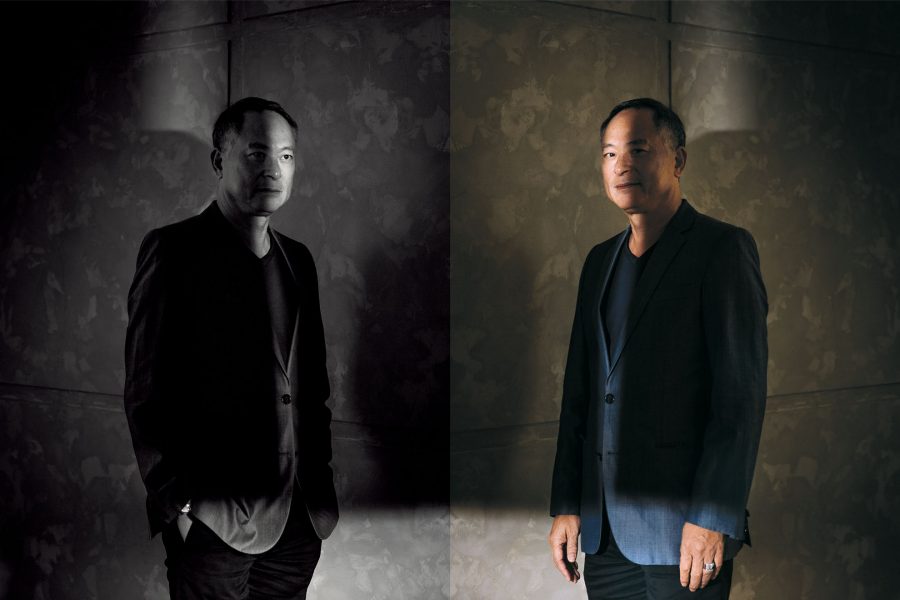
To film buffs, he is considered a master of the art. To his scriptwriters, he’s the demanding boss who torments them on set. To anyone who works in the industry, Johnnie To is ‘To Sir’, a moniker he has earned over a 40-year career that includes 55 feature films.
To Hong Kongers, he’s a three-time Best Director winner at the Hong Kong Film Awards, and one of the very few local filmmakers whose films have screened at all three of the world’s most prestigious film festivals: Berlin, Venice and Cannes.
Today, To is sitting in his office in Kwun Tong, east Kowloon, as Chairman To. He’s also sitting here as the founder of the Fresh Wave International Short Film Festival, a competition for young filmmakers, gearing up for its 11th year in 2017. The premise is simple: each year participants are given a small budget to produce short films. Winners have gone on to take up various positions in the film industry, such as assistant directors, scriptwriters and even directors.
Fresh Wave’s beginnings were anything but fresh. ‘We had just gone through the 2003 Sars epidemic. The mood in Hong Kong was very low, and people felt little hope for the future,’ says To. ‘When I spoke at universities, people would ask me how to enter the film industry. I told them off at first, telling them to seek opportunities on their own. But deep down, I knew that it was a problem. There were too many people asking this question.’
As a board member of the Hong Kong Arts Development Council, To founded Fresh Wave in 2005 as a way to address this problem. The competition began as a student film contest, recruiting participants from Hong Kong’s publicly funded universities. It later added an Open Division, widening the field to all aspiring filmmakers aged between 18 and 35.

Credit: Imaginechina
‘When I created Fresh Wave, I had one principle: to give opportunities to new people. Regardless of how little you knew, we’d let you participate as long as you had heart,’ says To.
The director is now the face and the PR of Fresh Wave: he contacts film festivals around the world to set up potential Fresh Wave screenings (he’s a regular guest at Italy’s Udine Far East Film Festival, which features an annual Fresh Wave showcase), lining up professionals from the film industry to serve as mentors.
To himself is a mentor, hiring several past Fresh Wavers for his company Milkyway Image. This year, the company released Trivisa, a 1990s-set crime drama co-directed by three former participants. The film, showing onboard this month, was co-produced by To and longtime screenwriter Yau Nai-hoi, whom To has pegged as his successor at Milkyway.
At the age of 61, the master feels ready to pass on the torch.
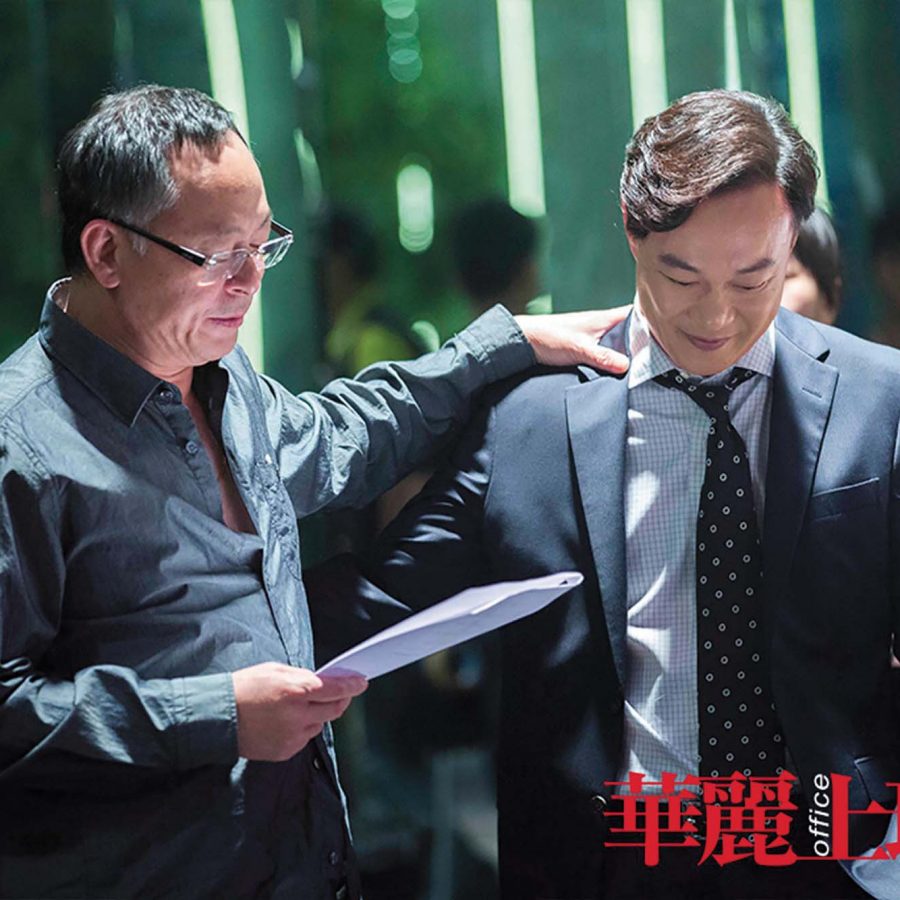
Credit: Imaginechina
‘Many Hong Kong Film Awards winners in the last few years were films by new directors. Ten years ago, I thought that young people were useless. But in the last few years, I started to realise that they may actually be good. Times do change, and [young people] will change, too. This is their time now,’ he says. ‘Some talented people have been springing up. If they’re supported properly, there will be a whole generation to carry the torch.’
To’s films are very much rooted in the city and his background as a Hong Konger. He was one of the last commercial directors in Hong Kong to take up digital filmmaking and still speaks fondly about shooting on film. ‘These days, if anything goes wrong, it can be fixed in post-production. We didn’t have that in the past: once the film is developed, then that’s it…with the limitations we faced, we were able to shape very personal styles. Everything looks the same now,’ he says.
In 2008, To directed Sparrow, a love letter to old Hong Kong. The breezy caper follows a professional pickpocket who bikes around the city with an old Rolleiflex camera in his spare time. That city, To laments, is gradually being lost to redevelopment.
‘Why do we get rid of places that hold collective memories and have great historical value?’ he says. ‘The old train station in Tsim Sha Tsui shouldn’t have been destroyed. The same goes for the old Star Ferry pier and even the old HSBC building. These buildings reflect so much of Hong Kong’s history.’
For years, To has been developing a project about the notorious Kowloon Walled City, the overcrowded, lawless slum that he lived in when he was a child. (It was demolished in 1993.) ‘I want to bring that feeling back, so I’ll do [the project] when the time is right. Hong Kong will always be my favourite place.’

Credit: Imaginechina
Our take on To
Johnnie To jumped into the Hong Kong film industry during its peak, churning out audience-friendly commercial films for over a decade before transforming into an auteur recognised around the world.
To’s renaissance began in the mid-1990s, when frustrations with mainstream filmmaking inspired him to form independent production company Milkyway Image with frequent collaborator Wai Ka-fai. As both director and producer, To slowly changed the face of Hong Kong cinema with dark, imaginative and immensely stylish films with their own distinct visual signatures.
To’s international fans know the filmmaker best by his gangster films. A Hero Never Dies, The Longest Nite and The Mission all reinvented the visual language of the ‘heroic bloodshed’ genre – made popular by John Woo in the late 1980s – emphasising graceful camera movement, meticulous framing and offbeat pacing.
That style ran through every genre that the Milkyway team dabbled in. Comedies like Needing You…, Help!!!, Love on a Diet and Wu Yen introduced a sense of manic energy that left audiences breathless. PTU, Running on Karma, Election and Mad Detective also proved To’s versatility as an artist who refuses to be bound by genre borders.
Today, To continues to tackle new challenges. Last year, he channelled the ghost of German playwright Bertolt Brecht with the brilliant musical drama Office, shot entirely on a soundstage.
To on To: Johnnie To’s films in his own words
1. Three (2016)
The story: A policeman, a surgeon and a criminal, each with a different ulterior motive, fight a battle of wits in a hospital.
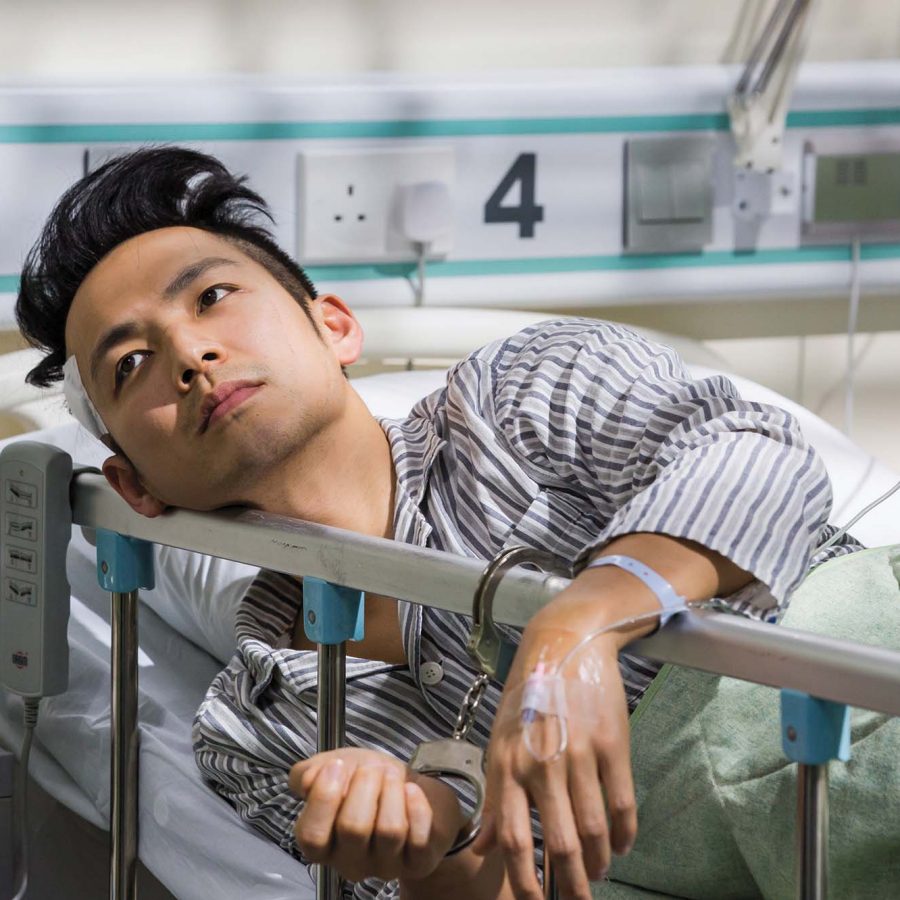
To says: ‘I’m dissatisfied with society at the moment. We don’t communicate as deeply as we used to – people have become colder to each other. We criticise, but we’re not constructive. How does that affect people’s respect for each other? Where does that take people’s morals? I made Three with this in mind.’
2. PTU (2003)
The story: Police and criminals collide on the dark streets of Hong Kong when a police gun is stolen.
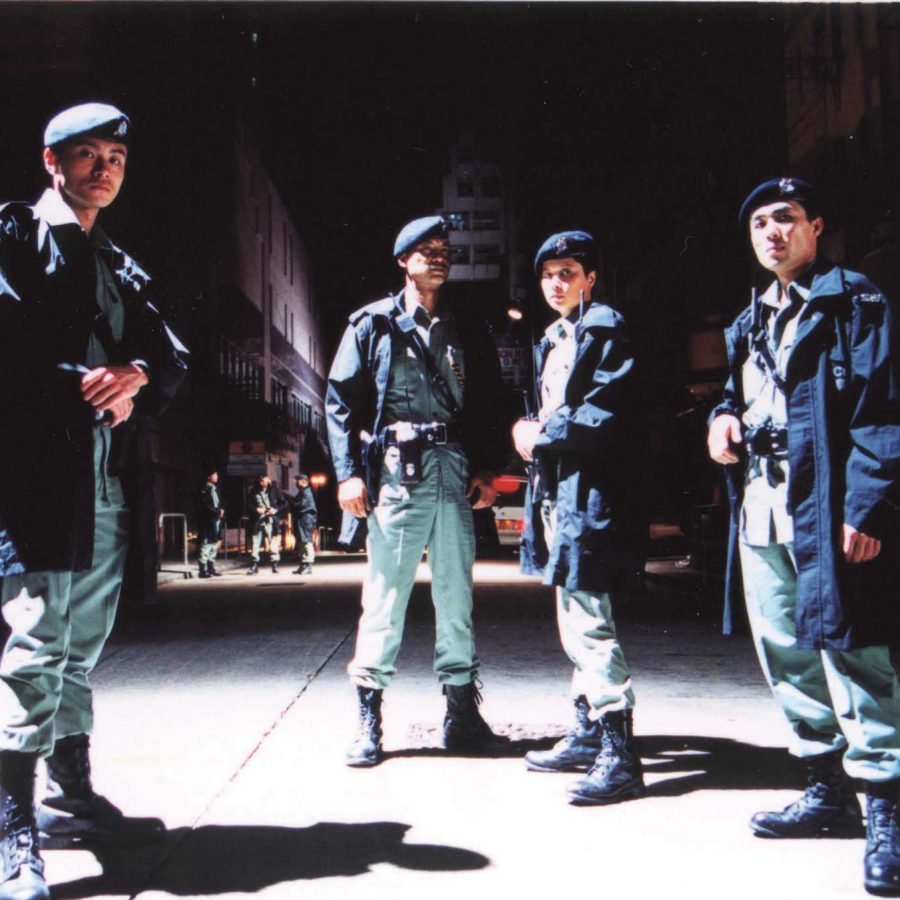
To says: ‘PTU was an experiment. I was trying to tell a story set in a single night, around a single incident. I initially wanted the visuals to be stage-like. It’s a world that exists between reality and fiction. The film took three years to shoot: I filmed when I felt inspired, and I worked on other films instead when I wasn’t. I’m happiest when I work on these projects – like The Mission, Sparrow, Exiled, Life Without Principle.’
3. Throw Down (2004)
The story: A drunken gambler, an eager judo fighter and an aspiring singer bring hope into one another’s lives.

To says: ‘I’ve never made a film that I truly like, but people often ask me in interviews to name one film that I am at least satisfied with. I’d choose Throw Down, which I made in 2003 during the Sars crisis. It makes me nostalgic for Hong Kong’s past. We used to watch a lot of Japanese films in the 1960s and ’70s. They always had a work-hard, can-do spirit. I wanted to reflect that spirit in this film. Throw Down is a reflection of my character. It’s a very personal film.’
4. Needing You… (2000)
The story: Two employees fall for each other in the face of complex office politics.
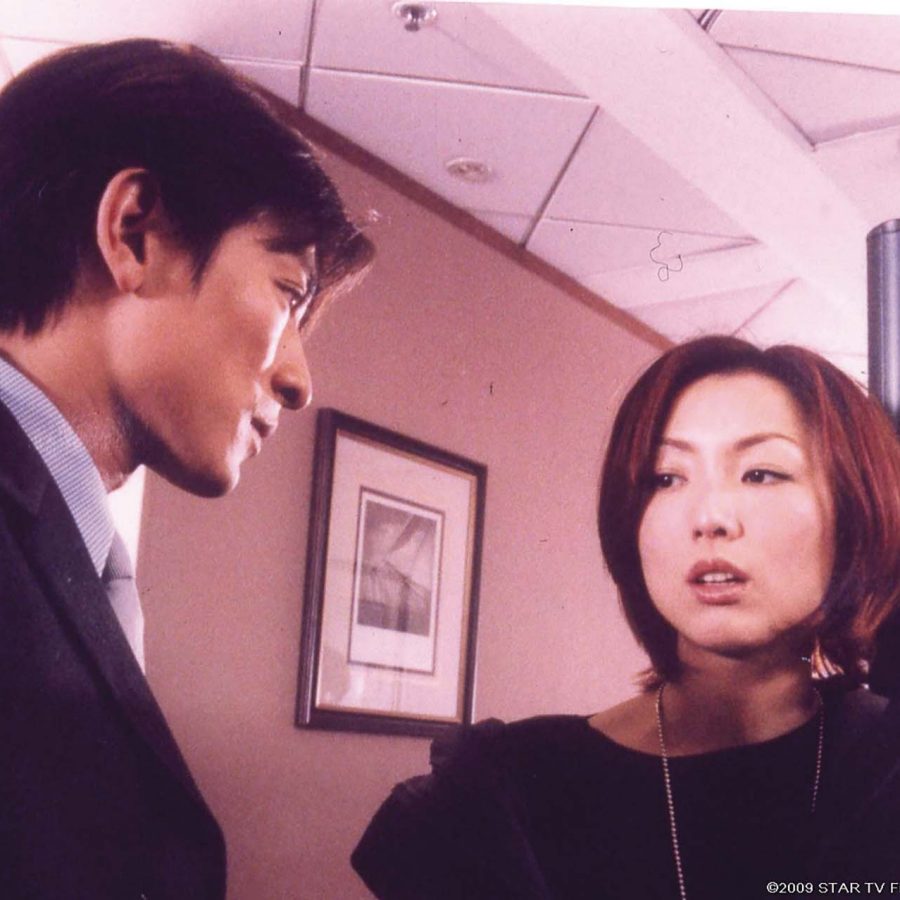
Credit: 2009 STAR TV Filmed Entertainment (HK) Limited
To says: ‘I like making films like this; I have fun doing them. Films like Needing You and Don’t Go Breaking My Heart are fantasies. I can’t live these stories in my old age, but at least my films can still have these kind of romances.’
More inspiration
Hong Kong travel information
- China – the Chinese Mainland, Hong Kong SAR, Macao SAR and Taiwan Region
- Hong Kong SAR - English
- Chinese Mainland (China) - English
- Taiwan, China - English
- 香港特別行政區 - 繁體中文
- 中国內地 - 简体中文
- 中國台灣 - 繁體中文
- Africa
- South Africa - English
- Asia
- Bangladesh - English
- Korea - English
- Singapore - English
- Cambodia - English
- 한국 - 한국어
- Sri Lanka - English
- India - English
- Malaysia - English
- Thailand - English
- Indonesia - English
- Maldives - English
- ประเทศไทย - ภาษาไทย
- Indonesia - Bahasa Indonesia
- Myanmar - English
- Vietnam - English
- Japan - English
- Nepal - English
- Việt Nam - tiếng Việt
- 日本 - 日本語
- Philippines - English
- Australasia
- Australia - English
- New Zealand - English